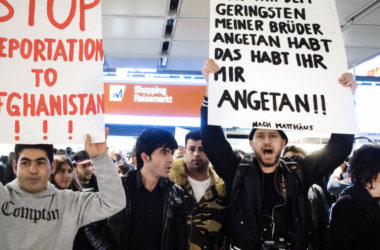It has been ten years since Politico launched its Brussels bureau, and during that time, Europe’s position in the world has become significantly more precarious. The EU now stands on the threshold of a new era, where the struggle for relevance and autonomy has come to the forefront.
In April 2015, Politico made its Brussels debut with a headline-grabbing story about then-European Commission President Jean-Claude Juncker’s kidney stones — a revealing piece that showed him trying to save the eurozone despite his ailment. It was the kind of intimate and candid reporting that helped establish Politico as a powerful player on the European media scene.
Today, such transparency is increasingly rare. The European Commission has transformed: once a collegial body filled with strong personalities, it has become a presidential structure centered around a single leader — Ursula von der Leyen. Her leadership style is centralized, assertive, and opaque. Together with her chief of staff, Björn Seibert, she has built a power vertical where nearly every decision flows through a small circle of trusted aides.
Where press offices were once open and accessible, information is now tightly controlled — as seen during von der Leyen’s bout of pneumonia in the winter of 2024, which was kept under wraps.
The end of the EU’s “Soft Power” era
For a long time, the European Commission set global standards — from GDPR to digital regulations. Europe projected its influence through regulatory power, the so-called “Brussels Effect.” But that influence now increasingly faces resistance. The new U.S. approach under Trump and Vance is openly hostile to European rules. At the same time, within the EU itself, there’s a shift away from strict regulation toward simplification and deregulation — driven in large part by economic pressures.
Crises as the new normal
Where once the EU wrote the rules, it now puts out fires. COVID-19, the war in Ukraine, and cooling relations with the U.S. all require Brussels to make urgent, often improvised decisions. Yet these crises have also exposed the EU’s weaknesses — especially in defense, where it still relies heavily on the United States.
Disagreements among member states, the lack of a unified defense policy, and the passivity of some countries make the path to “European independence” painful and chaotic. Meanwhile, the Commission and the Council are increasingly sidelined, as individual national leaders take the initiative.
The future of the EU — in question
The EU enters a new decade with the realization that its former role as a global standard-setter no longer holds. In a world defined by hard power, Brussels is being forced to rethink its mission. The main challenge is to preserve its identity while navigating internal divisions and external pressures. Independence may still be achievable — but the road ahead will be full of compromises, crises, and deep reflection.




